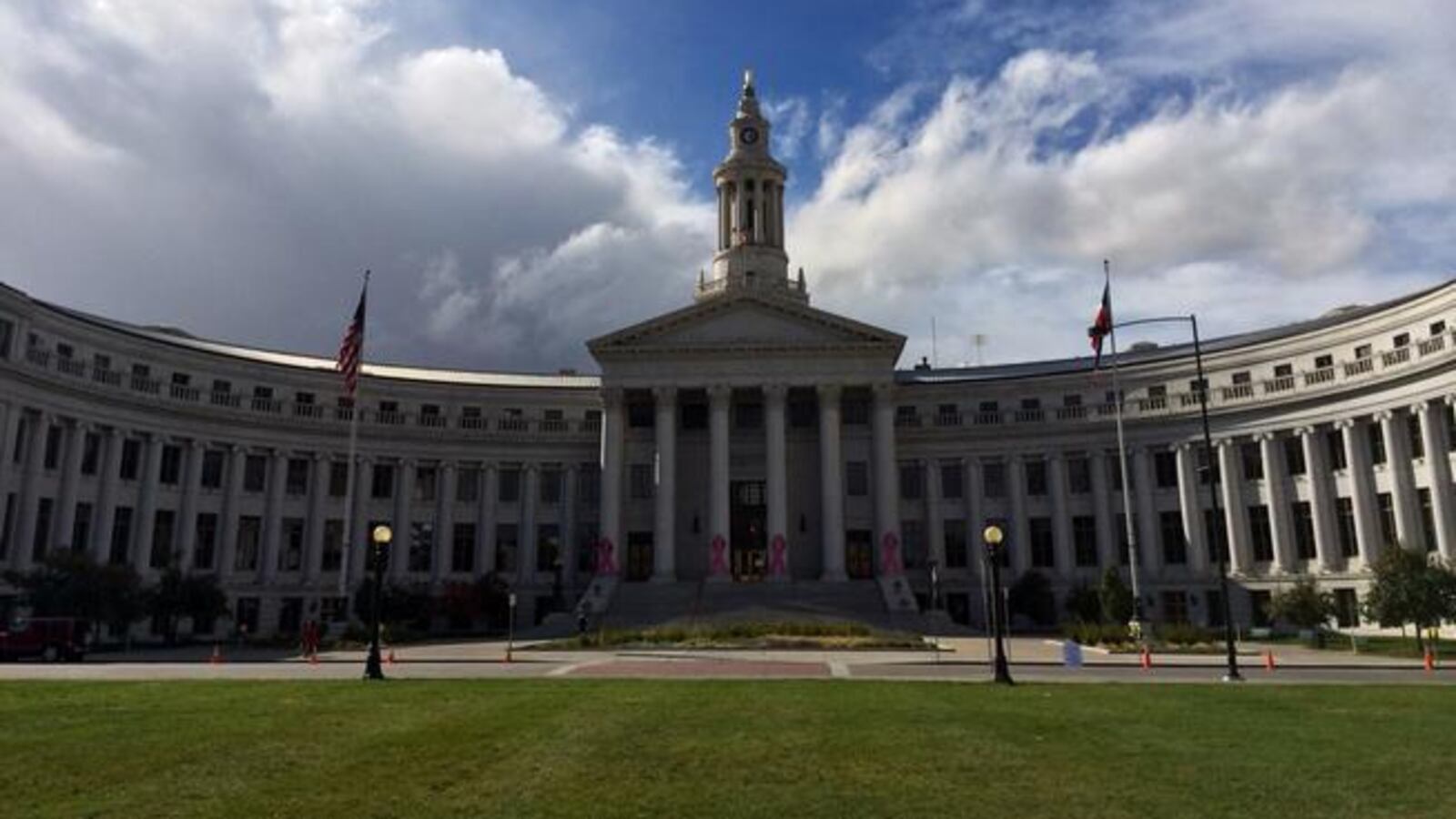Teachers have a lot at stake in what happens in their classrooms, but does that give them legal standing to challenge outside intervention in low-performing schools and districts?
That’s the first question a Denver district judge must answer in two lawsuits brought by teachers unions to block external managers from taking control of the Adams 14 school district in Commerce City and a struggling middle school in the Pueblo 60 district in southern Colorado.
In both cases, the local school board entered into a contract with the for-profit education consulting firm MGT after the Colorado State Board of Education ordered them to seek outside help. The Adams 14 district and Risley International Academy of Innovation in Pueblo have spent eight years on a state watchlist for schools and districts with consistently low test scores.
These are the first state-ordered outside interventions under Colorado’s 2009 accountability law, and the outcome of these lawsuits will clarify the state’s authority to tell school districts what to do.
Judge David Goldberg heard back-to-back oral arguments Thursday in Denver District Court on whether teachers unions could challenge these state board decisions. He plans to issue a decision later. Opponents want the courts to block the work of external manager MGT from moving forward while the lawsuit is heard, but even these requests for a temporary stay first require the court to rule that teachers have standing to sue.
Representing the State Board of Education, First Assistant Attorney General Julie Tolleson noted that school board members — elected to represent Colorado’s school districts — had not challenged the legality of the state board decisions in court. She cited other cases in which the courts had found that disagreeing with a government decision did not give someone grounds to sue.
“The question does become: Whose fight is it anyway?” Tolleson told the court. “The core narrative alleges a state overreach against this local school district. The district didn’t object. Now the teachers union is trying to.”
In turn, attorneys for the Pueblo and Adams 14 teachers unions argued that their members will suffer real harm if the contracts with MGT are allowed to go forward. Putting significant authority over the day-to-day operations of schools in the hands of a private manager has implications for their collective bargaining agreements, for how their tax dollars are spent, and for how much control voters have over their schools, the attorneys said.
In an interview, Tolleson said that if the teachers union prevails in challenging these interventions, it could introduce “chaos” into the accountability system.
“How does the state intervene and ensure students are getting a good education?” she asked.
Kris Gomez, general counsel for the Colorado Education Association, the state teachers union that is supporting the local unions in their legal challenge, said in an interview that educators are playing an important role in checking state authority.
“We can ensure that agencies are complying with the law and not turning public schools over to private entities,” she said.

